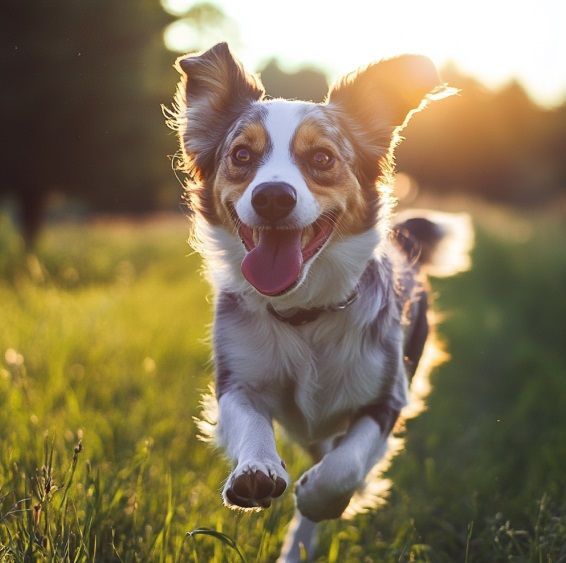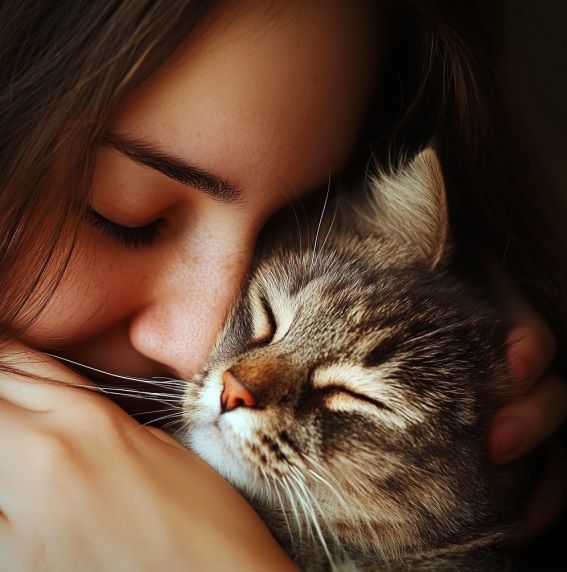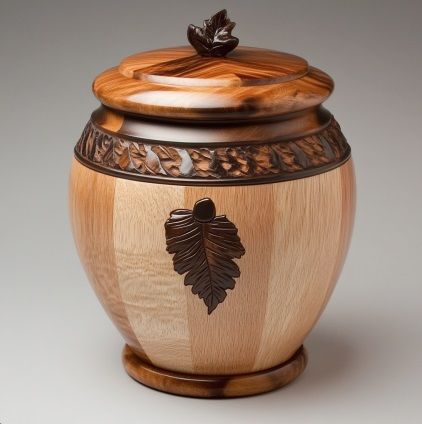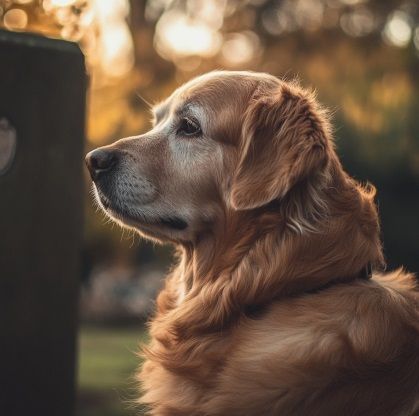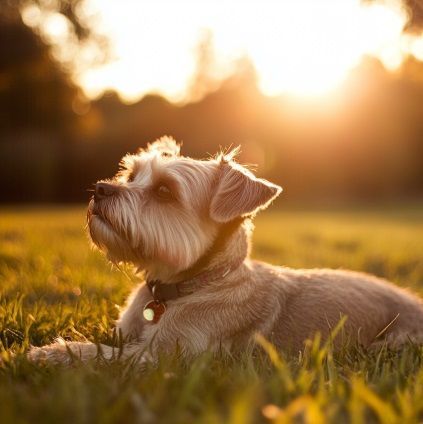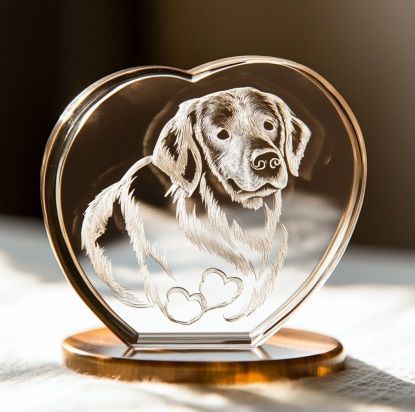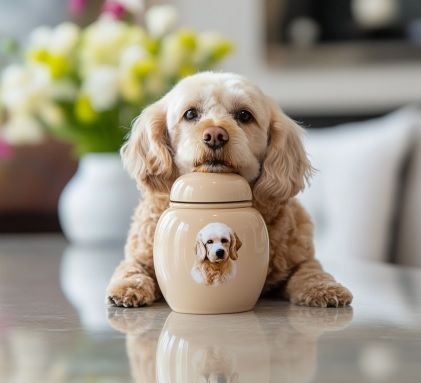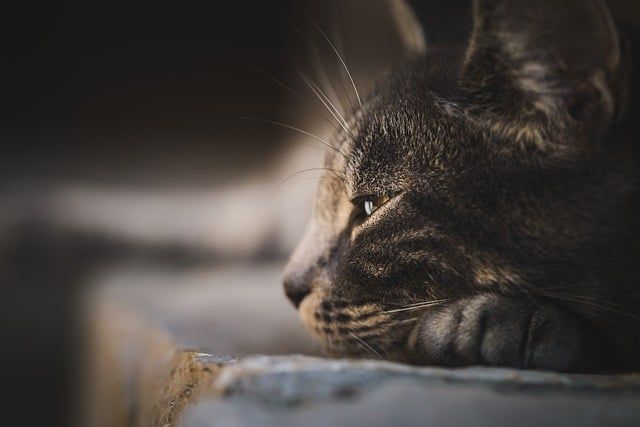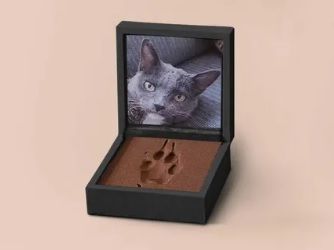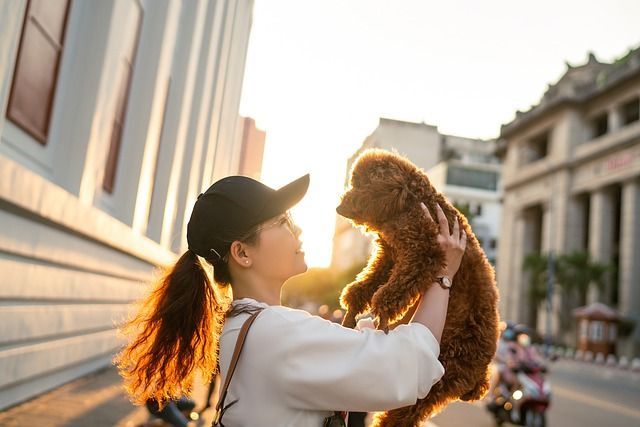4 Pet Safety Tips for the Holiday Season
4 Pet Safety Tips for the Holiday Season
Festivities Can Be Stressful for Furry Family Members
For humans, holidays can be a time for celebration and reconnecting with family. But for our furry family members, holidays are a time of disrupted schedules, strangers at the door, and enticing but forbidden treats. As a pet parent, you can minimize your fur baby’s stress and keep them safe throughout the holiday season by planning ahead. Below are some common concerns and tips for keeping your pet safe throughout the season.
1 – Keep Their Routines as Consistent as Possible
Animals don’t have the same concept of time that we do. They don’t have calendars and don’t understand the concept of holidays. When parties and get-togethers suddenly disrupt their schedules, they don’t understand that it’s a special occasion. They only know that what they’re used to has changed.
You can help your pet feel more secure by keeping their mealtimes consistent and sticking to your usual schedule for walks or playtimes. When guests are over, provide your pet with a quiet room or other space they can hide away from loud noises and strangers. Gate off high-traffic areas, and keep an eye on doors as pets can easily slip outside when guests enter or exit the home.
If you’ll be traveling, you may wish to consider leaving your pet at home with an at-home pet sitter or using a trusted boarding kennel. Air travel in particular can be uncomfortable and even dangerous for pets, especially if you can’t bring them in the cabin with you. Call ahead to the airline to ask about their pet policies, or plan other arrangements well in advance of travel.
2 – Avoid Sharing Any Dangerous Foods and Treats
It’s no surprise that pets love begging for special treats during the holidays. But many popular festive foods can make dogs and cats sick. Some people foods that are toxic to pets include:
- Chocolate
- Alcohol
- Grapes and raisins
- Onions and garlic
- Foods sweetened with xylitol, like drink powders and some peanut butters
- Raw yeast doughs
Cooked bones are brittle and can break, creating a choking hazard. You’ll also want to avoid feeding pets turkey skin, gravy, or drippings, as these high-fat foods can cause diarrhea or a serious condition called pancreatitis.
It’s best to avoid sharing people food with your four-legged friends. Instead, opt for pet treats designed with their dietary needs in mind, or choose durable non-food chew toys to keep them occupied. Cover your trash cans or remove trash from the kitchen right away to prevent any accidental ingestion of forbidden foods.
3 – Watch Out for Dangerous Decorations
Some pets show no interest in holiday decorations. Others can’t resist flashing lights, sparkly tinsel, tasty-smelling candles, poisonous festive plants, and other common pieces of décor. It’s best to hedge on the side of safety and take steps to protect your Christmas tree, menorah, or other holiday decorations from curious critters.
Placing decorations and gifts on a high table or mantel may be sufficient to keep dogs from getting into them. Baby gates or partitions can also be helpful. Pet deterrent spray or citrus essential oil can also help to keep pets away from areas you don’t want them playing near or chewing.
To be on the safe side, you should plan to wrap all power cords – cardboard tubes from wrapping are great for this – and opt for non-breakable ornaments. Avoid leaving candles burning unattended, and consider avoiding poisonous plants like poinsettias and lilies entirely.
4 – Plan for Emergencies
During the holiday season, your usual veterinarian may be unavailable, or the clinic hours might be limited. Check their holiday hours and make plans well in advance to ensure your pet’s immunizations are up-to-date and any prescriptions they take are filled before the clinic closes. Find the nearest emergency vet’s office and save their contact information in your phone. Be sure to write that information down for your pet sitter, too.
MENU
Best Friends Pet Passings + Cremations
Business Hours
Monday – Friday 9:00 am to 5:00 pm
A Year of Grief Support
Sign up for one year of weekly grief messages designed to provide strength and comfort during this challenging time.
Please wait
Verifying your email address
Please wait
Unsubscribing your email address
You have been unsubscribed
You will no longer receive messages from our email mailing list.
You have been subscribed
Your email address has successfully been added to our mailing list.
Something went wrong
There was an error verifying your email address. Please try again later, or re-subscribe.

